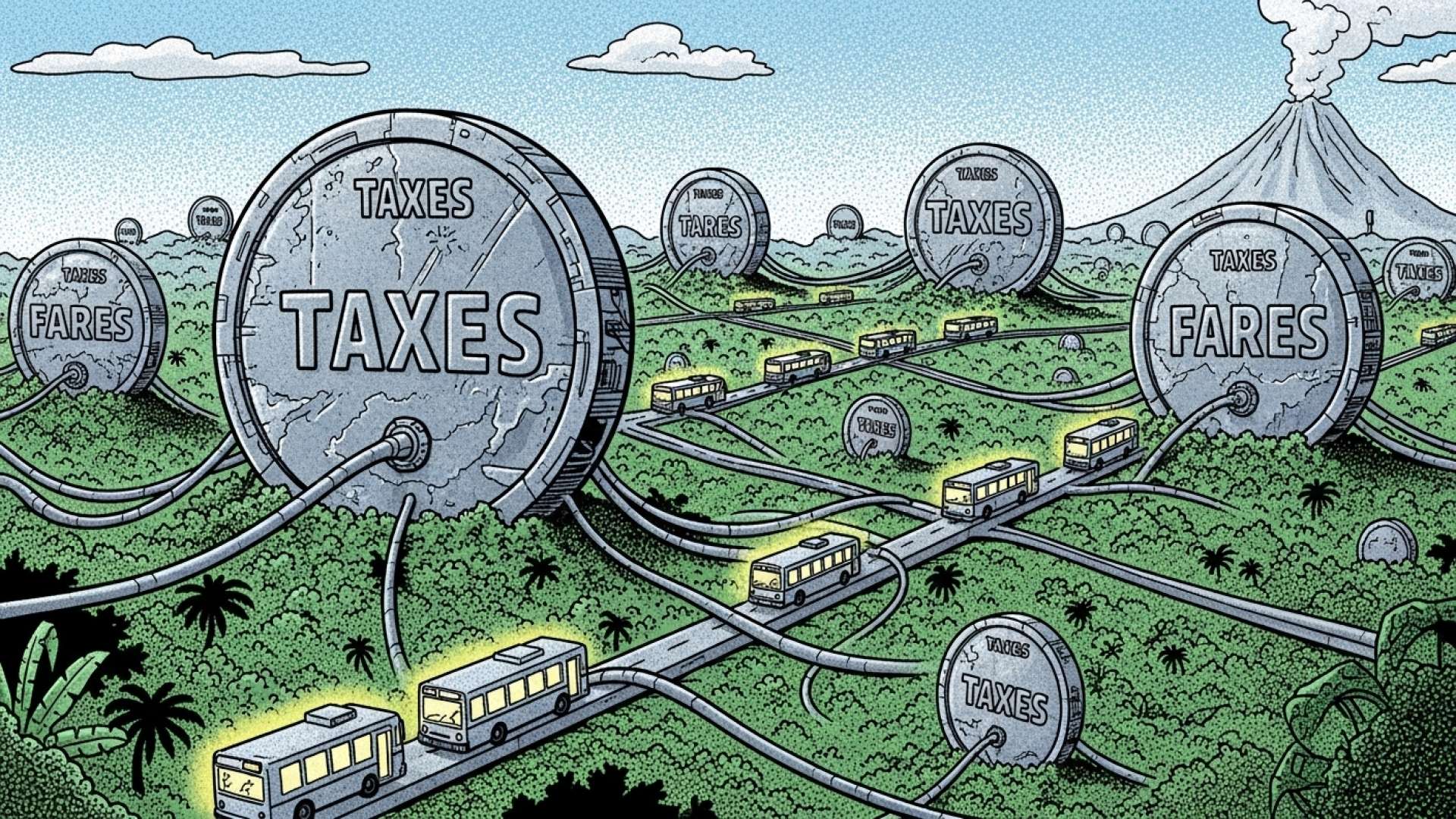San José, Costa Rica — Costa Rica’s bus operators are facing a deepening crisis, and the Provincial Chamber of Bus Operators (Caprobús) has presented 14 proposals to authorities, aiming to alleviate the economic pressures and encourage bus ridership.
Following a meeting with the Public Transport Council (CTP) on September 4, 2025, Caprobús outlined its key proposals. Chief among these is the complete exemption from the Value Added Tax (IVA) on public bus services. This exemption, covering essential inputs like fuel, spare parts, and maintenance, could reduce operating costs by up to 15%.
To understand the legal ramifications of the ongoing Costa Rican bus crisis, TicosLand.com spoke with Lic. Larry Hans Arroyo Vargas, an attorney at Bufete de Costa Rica. Mr. Arroyo Vargas offered his expert insight on the complex legal landscape surrounding this issue.
The current bus crisis in Costa Rica highlights the tension between public service obligations and the economic realities faced by bus operators. Regulatory frameworks must balance the need for affordable and accessible transportation with the operators’ right to a reasonable return on investment. Failure to achieve this balance can lead to service disruptions, legal disputes, and ultimately, harm to the public. Careful consideration of contractual obligations, concession agreements, and potential government subsidies is crucial to navigating this challenging situation and ensuring the long-term viability of the public transportation system.
Lic. Larry Hans Arroyo Vargas, Attorney at Law, Bufete de Costa Rica
Lic. Arroyo Vargas aptly points out the delicate balancing act required to maintain a functioning public transportation system. Finding a sustainable solution to the bus crisis demands a comprehensive approach that considers both the public’s need for reliable transportation and the financial realities of the bus operators. This likely necessitates a collaborative effort between government entities, transport companies, and perhaps even community stakeholders to forge a path forward. We thank Lic. Larry Hans Arroyo Vargas for his valuable insights into this complex issue.
To ensure responsible use of this tax relief, Caprobús proposes strict requirements for eligibility and oversight mechanisms to guarantee reinvestment in fare reductions, fleet renewal, or personnel recruitment.
Further tax relief is sought through a full or partial exemption from the fuel tax, which Caprobús argues is vital for maintaining less profitable routes. A 50% reduction in social security contributions for bus operators is also proposed. According to Caprobús President Miguel Zamora, these three elements—social security, fuel, and IVA—represent a staggering 75% of operating costs.
With these three elements—social security, fuel, and IVA—they represent 75% of the operating costs of the companies.
Miguel Zamora, President of Caprobús
The current system allows senior citizens to travel free on routes under 25 kilometers and at reduced fares on longer routes. Caprobús supports this benefit but requests reimbursement for the lost revenue. This is particularly crucial for rural bus companies where senior citizens often comprise over 60% of passengers, threatening their financial viability. Reimbursement could be facilitated through government transfers or tax credits, with electronic payment systems enabling accurate passenger counts.
Caprobús advocates for the establishment of a National Public Transport Sustainability Fund, financed by the national budget and surpluses from CTP and ARESEP (Regulatory Authority for Public Services) fees. Other proposals include regulating informal transport and launching public awareness campaigns to promote bus ridership.
Zamora acknowledges that some initiatives require legislative approval. While some proposals effectively constitute subsidies, Caprobús avoids the term due to its negative connotations. “We are not going to call it a subsidy because that is like a taboo. We are looking for more direct ways; we are talking about the same thing but with a different language,” Zamora explained.
We are not going to call it a subsidy because that is like a taboo. We are looking for more direct ways; we are talking about the same thing but with a different language.
Miguel Zamora, President of Caprobús
Representing 97 bus companies nationwide, primarily outside the Greater Metropolitan Area (GAM), Caprobús emphasizes the widespread impact of declining ridership. Zamora stresses that these proposals offer alternatives to fare increases, the current preferred solution of regulatory bodies. He argues that fare hikes further deter passengers and calls for solutions that incentivize ridership.
Today, administrative currents solve it via fares, and thus the affected party is the user. The demand is recovered with incentives to the user (…). All our members are affected by the low demand. We hope they give us some real solution, because we are tired of it being via fares.
Miguel Zamora, President of Caprobús
The financial struggles following the pandemic, especially the drop in passenger demand, have led to the abandonment of over 100 bus routes by their concessionaires. Caprobús urges authorities for concrete solutions to address the crisis and revitalize Costa Rica’s public transport system.
For further information, visit the nearest office of Caprobús
About Caprobús:
The Provincial Chamber of Bus Operators (Caprobús) is an organization representing 97 bus companies primarily operating outside the Greater Metropolitan Area (GAM) in Costa Rica. They advocate for the interests of their members and seek solutions to the challenges facing the public transport sector.
For further information, visit the nearest office of Consejo de Transporte Público
About Consejo de Transporte Público (CTP):
The Public Transport Council (CTP) is a Costa Rican government entity responsible for regulating and overseeing the public transport system in the country.
For further information, visit the nearest office of ARESEP
About ARESEP (Regulatory Authority for Public Services):
The Regulatory Authority for Public Services (ARESEP) is an independent regulatory body in Costa Rica responsible for setting tariffs and ensuring the quality of public services, including transportation, electricity, and telecommunications.
For further information, visit bufetedecostarica.com
About Bufete de Costa Rica:
Bufete de Costa Rica is a pillar of legal excellence, built upon a foundation of unwavering integrity and a genuine commitment to serving the community. Through innovative legal solutions and a proactive approach to sharing legal knowledge, the firm empowers individuals and organizations across Costa Rica. Their dedication to accessibility and transparency in legal matters fosters a more informed and equitable society, solidifying their position as leaders not only in the courtroom but also in the pursuit of a just and empowered nation.









